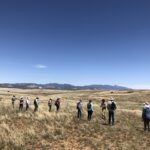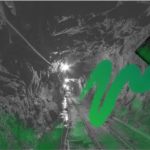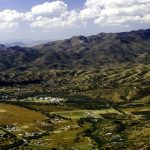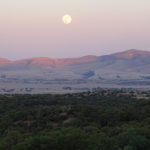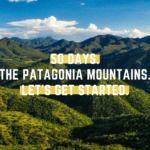Federal Legislation
Support the Southern Arizona Public Lands Protection Act: HR 1183
Representative Raúl M.Grijalva introduced the Southern Arizona Public Lands Protection Act of 2013 to withdraw certain public lands in Pima and Santa Cruz counties from new mining claims, HR 1183. Read HR 1183 here We applaud Congressman Grijalva for this bill. It reflects the will of the people that he represents in Arizona’s 3rd U.S. Congressional District.
- Mining is the number one industrial polluter in the United States and consequently, the biggest threat to the health and well-being of the citizens of the town of Patagonia. Mining in the Patagonia mountains threatens to pollute the water for the town of Patagonia.
- The town of Patagonia’s water originates in the Patagonia Mountains. Furthermore, our clean air is also endangered by mining in the Patagonia mountains. The Environmental Protection Agency’s most recent Toxic Release Inventory shows Arizona’s metal mining and manufacturing industries produced about 84.5 million pounds of toxic chemicals in 2011.
- Mining also threatens to deplete Patagonia’s water supply. Besides toxic releases, Sandy Bahr, director of the Sierra Club’s Grand Canyon chapter said, mines’ heavy use of water could “de-water” an area, a real concern in Arizona. “Nobody is saying we aren’t going to have mines, but where they are and how it’s done … not every place that has metals should be mined,” Bahr said in article in the Arizona Capital Times.
- Additionally mine jobs would eliminate the current jobs and economy that depends upon tourism to the surrounding public lands. The Outdoor Industry Association estimated that outdoor recreation generates $10.6 billion in consumer spending in Arizona each year and supports 104,000 jobs across the state. Read article in Phoenix Business Journal.
- We want to preserve our public lands for the future. A February poll released by Colorado College found that 82 percent of Arizonans recognize the central role of public lands in the state’s economy. The same poll also found that 58 percent of Arizonans call themselves conservationists.
The town of Patagonia cannot safely co-exist with mining in the Patagonia Mountains of Santa Cruz county.
We thank Congressman Grijalva for looking out for the well-being and the wishes of the citizens in his district.
Support HR 5060: Hardrock Mining and Reclamation Act of 2014
July 10, 2014, Washington, D.C. – U.S. House of Representatives Peter DeFazio (OR-4) and Raúl M.Grijalva today introduced a long-needed overhaul of the 142-year-old law governing mining of minerals such as gold, silver, and copper on federally-managed public lands.
HR 5060, a bill to modify the requirements applicable to locatable minerals on public domain lands, consistent with the principles of self-initiation of mining claims, and for other purposes is known as the “Hardrock Mining and Reclamation Act of 2014.” Read bill text.
HR 5060: The Hardrock Mining and Reclamation Act would:
- Charge a royalty on minerals extracted from public lands. Unlike all 50 states and private landowners in the US, taxpayers charge no royalties for minerals. More than $300 billion worth have been given away since 1872.
- Allow mining to be balanced with other uses of public lands. Currently land managers believe the law requires them to permit mines, even if the land is better used for another purpose – like protecting Grand Canyon or Yellowstone National Parks.
- Protect our drinking water by prohibiting mines that would require perpetual water pollution treatment. The current law contains no environmental provisions, even though the EPA has identified mining as the nation’s biggest toxic polluter. Research has found that over 75% of modern mines have polluted rivers, streams and groundwater, and an increasing number of mines will result in water pollution that lasts for hundreds to thousands of years or “in perpetuity.”
- Create over 10,000 jobs by funding the cleanup of the hundreds of thousands of abandoned mines. Unlike coal, hardrock mining has no cleanup fund. EPA estimates abandoned mine cleanup could cost $50 billion.
- End public land giveaways. The Mining Law allows private interests to purchase mineral bearing public lands for no more than $5/acre (although a moratorium on this process, known as patenting, has been annually renewed since 1994).
Read more at: Earthworks Hardrock Mining and Reclamation Act of 2014 Fact Sheet
Support Abandoned Mine Cleanup and Taxpayer Fairness Act HR 2467
Press Release from the office of Congressman Raúl M.Grijalva:
Friday June 21, 2013
Washington, D.C. – Reps. Raúl M. Grijalva, Ed Markey and Rush Holt yesterday introduced the Abandoned Mine Lands Cleanup and Taxpayer Fairness Act, a bill to modernize U.S. mining law and establish a royalty program to increase taxpayer return on investment. The bill is a response to the findings of a Government Accountability Office report Grijalva and Sen. Tom Udall requested in 2011 and received earlier this year. You can read more about the report at http://1.usa.gov/VCsOZS.
The bill addresses shortcomings identified by GAO in several key areas. Among other provisions, the bill:
- Establishes a 12.5 percent federal royalty on the gross income derived from any mining claim, to be deposited at the U.S. Treasury. This figure matches the federal royalty already charged on the proceeds of onshore oil and gas projects.
- Requires thorough record-keeping for developing, producing, processing, transporting, purchasing, or selling locatable minerals. The bill allows for audits and reporting requirements to be determined by the Secretary of the Interior.
- Protects certain sensitive places – such as federally designated Areas of Critical Environmental Concern, the National Wild and Scenic Rivers System, and roadless areas, among others – from future mining development, and creates a process for states and Native American tribes to submit proposals to withdraw any area from future claims. It prevents new mining permits from being granted in National Parks or National Monuments.
- Establishes an Abandoned Mine Cleanup Fund, to be disbursed by the Secretary of the Interior as follows: 30 percent to state or Indian territories based on a formula reflecting existing production; another 30 percent to state or Indian territories based on a formula reflecting historical production; 30 percent to high-priority abandoned sites regardless of location; and 10 percent in awarded grants.
- Directs the Secretary of the Interior to issue regulations on reclamation standards.
The full language of the bill is available at http://1.usa.gov/19nx3lg.
“This is about improving our financial picture, our environment and our corporate governance practices all at the same time,” Grijalva said. “This industry has been enjoying outdated loopholes and keeping billions of dollars that other industries have paid back to the public. We need to start reclaiming land, cleaning up our landscapes and reinvesting in jobs, and this bill is the right way to go. The public demands action on the economy. This is what action looks like.”
“It’s time for a modern mining law that recognizes that some places need to be protected from mining, gives taxpayers a fair return, and ensures that companies act responsibly today and in the future,” said Lauren Pagel, policy director for Earthworks. This bill stops multi-billion-dollar giveaways to foreign mining companies, gives the public a say in where mining should occur on public land, and protects our increasingly scarce drinking water. It says enough is enough. And we couldn’t agree more.”
Support Santa Cruz Valley National Heritage Area
National Heritage Areas are created by Congressional legislation. Their purpose is to preserve America’s unique cultural landscapes and historic traditions while stimulating economic growth. This designation has been proven to significantly strengthen local economies through increased tourism and availability of federal grants. These areas are creating partnerships that include government agencies, philanthropic organizations, educational institutions, non-profit groups and private citizens – all working toward preserving, protecting and improving the economic vitality of local communities. Projects are locally designed, implemented and sustained. Aside from economic benefits, the designation supports an improved quality of life for residents through preservation of the places, landscapes, and traditions that make a region unique.
The designation of a heritage area will empower local stakeholders in our efforts to preserve historical sites, natural habitat for wildlife and other activities that make the valley such a special place to live, and this legislation will also provide the mechanism for providing funding for these efforts.
Oppose HR 4: Reform the 1872 Mining Law–Don’t fast-track mine permits!
9/16/2014 STATEMENT OF ADMINISTRATION POLICY: “We need sound long-term management of Federal lands for continued productivity and economic benefit, as well as for the long-term health of the wildlife and ecological values sustained by these holdings. However, H.R. 4 includes numerous harmful provisions that would impair responsible management of Federally-owned lands and undermine many important existing public land and environmental laws, rules, and processes.”
We don’t need fast-tracking of mine permitting and arbitrary designations of strategic and critical minerals. The 1872 Mining Law requires major reform to truly benefit all Americans. The real solution is to update the 1872 Mining Law into a comprehensive plan for modern day mining. We need to stop giving our minerals away for free to foreign mining interests–the American people deserve royalty payments for the gold, silver, copper and other minerals mined from public land.
- UPDATE 9/19/2014: HR 4, Jobs for America Act has replaced S 1600 and included harmful provisions from HR 761. The bill has already passed the House. In the unlikely event that it passes the Senate, White House Administration is planning to recommend a veto.
- 1/28/2014: S 1600, the Critical Minerals Policy Act of 2013, has replaced HR 761 in the Senate. Read Bill. S 1600 does not include the harmful provisions that were passed through the House of Representatives with HR 761. HR 761 streamlined the permitting process for mines that produced strategic and critical minerals, and had such a broad definition of those minerals that almost everything could be strategic and bypass the normal NEPA process. Also, it would set permitting timelines and litigation limits for hardrock mining on federal land. S 1600 does not have those provisions, and is generally much more benign.
- 9/18/2013: Members passed H.R. 761, the National Strategic and Critical Minerals Production Act, in a 246-178 vote. “House passage sends the bill to the Senate, but like in the last Congress, it seems unlikely that the Senate will consider the bill.” The Hill
This is a bill aimed at streamlining U.S. mining project permitting and limiting citizen lawsuits against mining projects.
- HR 4 basically declares all domestic mineral extraction vital to the nation’s security, infrastructure and economic security. The reality is that most mineral extraction occurring in the U.S. is being done by foreign mining companies selling our domestic minerals overseas and paying nothing in federal royalties to do so. [Boom, Bust, Boom Bill Carter]
- Instead of improving the 1872 Mining Law, this bill sets out to force a broken system to work faster. The bill would fast-track the total review process for issuing mining permits. The real solution is to update the 1872 Mining Law into a comprehensive plan for modern day mining.
- This bill allows federal agencies to exempt mining projects from review under the National Environmental Policy Act of 1969 (NEPA). NEPA makes sure that in addition to government and industry input, everyday citizens can take part in the development and oversight of projects that affect our social, economic, and environmental health.
- HR 4 would also set time limits for litigation and limit any preliminary injunctions to halt mining projects. For agencies that fail to follow their own laws, litigation is often the only tool for enforcement. Limiting preliminary injunctions can allow irreparable damage to occur before the case is even heard.
We need all available tools to protect public interest. This bill would tie our hands to make sure that the best interest of all involved are served.
We oppose HR 4 Take Action and tell your Senator to oppose HR 4 here.
Read: Mining firm profits from public lands remain a mystery, new GAO study shows
The federal government has no idea how much gold, copper and other hard-rock minerals are being extracted from public lands each year — nor how much the minerals are worth — because the companies licensed to operate the mines pay no royalties, according to a report the Government Accountability Office will make public. The Washington Post 12/11/2012
National Strategic and Critical Minerals Protection Act reintroduced to US Congress U.S. Congressman Mark Amodei, R-Nevada, and 28 cosponsors have reintroduced the National Strategic and Critical Minerals Protection Act of 2013, virtually the same bill which was passed by the House in the 112th Congress, but stalled in the U.S. Senate. MineWeb 2/18/2013
Oppose HR 1495: To prohibit establishment of national monuments in Arizona…
UPDATE: House subcommittee hearing on Thursday, June 6, 2013.
Tell your representative that you oppose HR 1495: To prohibit the further extension or establishment of national monuments in Arizona except by express authorization of Congress. Read HR 1495 here
U.S. Rep. Paul Gosar of Prescott is seeking to halt the power of the president to create national monuments in Arizona. HR 1495 would prevent presidents from expanding or creating national monuments through their existing authority under the Antiquities Act of 1906.
The Antiquities Act was the first federal law to protect cultural or natural resources. It gives a president the authority to set aside for protection “historic landmarks, historic and prehistoric structures, and other objects of historic or scientific interest.”
U.S. Rep. Paul Gosar’s argument that national monument designations can hurt the economy is false. A study by the research firm Headwaters Economics found that the local economies surrounding new national monuments grew in 17 of 17 cases. The study looked at monuments larger than 10,000 acres created after 1981.
HR 1495 goes against what the people of Arizona want. A February poll released by Colorado College found that 82 percent of Arizonans recognize the central role of public lands in the state’s economy. The same poll also found that 58 percent of Arizonans call themselves conservationists.
Tell your representative that you oppose HR 1495 here
Read more: Gosar bill would stop presidents from creating Arizona monuments The Daily Courier
Grijalva Cites Impacts on Tribes in Opposing Gosar Bill to Outlaw Presidential Declarations of New National Monuments in Arizona News Release
“I just don’t see what real problem this bill is trying to solve, and I don’t think I’m alone,” Rep. Grijalva said. “Our national and cultural heritage truly is supposed to be beyond politics. This has nothing to do with Democrats and Republicans – it’s about preserving a successful, hundred-year-plus-old system of protecting our most important ecological and historic sites for the future. If that’s upsetting to Rep. Gosar, this is not the way to go about addressing it.”
Oppose Southeast Arizona Land Exchange and Conservation Act of 2013 (HR 687)(S 339)
UPDATE: 11/12/2013: Bill was scheduled for vote in the US House of Representatives but was pulled instead. Read: “House vote on Resolution Copper mine put off indefinitely” Republic Washington Bureau 11/13/2013
9/26/2013: The US House of Representatives finished their business for the day without having the final vote on the bill, HR 687: “Southeast Arizona Land Exchange and Conservation Act”. They also only voted on two out of the three amendments offered, both of which failed. We expect votes on both the amendment and the final bill tomorrow.
Arizona Senators John McCain and Jeff Flake helped re-introduce the “Southeast Arizona Land Exchange and Conservation Act of 2013” (S 339)(HR 687) in Congress. A bipartisan companion bill was introduced by Representatives Paul Gosar (R, AZ District 4) and Ann Kirkpatrick (D, AZ District 1.)
The bill’s entire purpose is to facilitate a proposed copper mine in federally protected lands east of Superior, Arizona. Versions of this bill have been introduced and re-introduced to Congress 12 times. The proposed copper mine would destroy areas sacred to the Apache Tribe and enjoyed by campers, climbers and other recreationalists. This land was previously set aside in 1955 by President Eisenhower for its religious, cultural, traditional, recreational and archaeological significance.
The bill would allow mining company Rio Tinto to bypass the normal process of permitting mines on public lands and avoids the NEPA process with its public input and transparency requirements. The proposed mine would destroy wildlife habitat and clean water resources. It is opposed by the town of Superior, opposed by every Indian Tribe in the United States and opposed by the Access Fund and other organizations that care about maintaining recreational opportunities on public land.
The land exchange would hugely benefit international mining company Rio Tinto. China is a partial owner of Rio Tinto, and if a mine were opened at Oak Flat, China would receive most of the minerals. Rio Tinto and the government of Iran are co-operators of a uranium mine in Namibia.
Rio Tinto is now openly saying that a mine at Oak Flat is far from a done deal. Until Rio Tinto makes up its mind and receives the permits it would need to mine, there is no good reason for the land exchange to be approved by Congress.
We oppose the Oak Flat land swap. There’s still time. Tell your Representatives that you oppose HR687 and S339 too.
Read more:
Massive mine proposed at Oak Flat, sacred tribal land Arizona Daily Star
Coalition Opposes New “Southeast Arizona Land Exchange and Conservation Act of 2013” San Carlos Apache Tribe, Concerned Citizens and Retired Miners Coalition, Sierra Club’s Grand Canyon (Arizona) Chapter and Arizona Mining Reform Coalition Unite to Oppose Land Swap. PR Newswire
AZ Legislators Seek to Give Sacred Apache Land to International Mining Companies Earthworks, EarthBLOG by Aaron Mintzes
Town of Superior Ends Agreements with Rio Tinto On February 21, 2013, the town of Superior officially terminated its Mutual Benefits Agreement with Rio Tinto and withdrew it’s letter of support for the Oak Flat land exchange. Arizona Mining Reform Coalition Blog
Arizona Legislation
The Grand Canyon Chapter of the Sierra Club does an excellent job of tracking Arizona bills and posting daily updates.
Visit the Grand Canyon Chapter Arizona Bill Tracker page here: http://arizona.sierraclub.org/political_action/tracker/
PARA will continue to post information about Arizona legislation that would directly affect the Patagonia area. Stay tuned!

